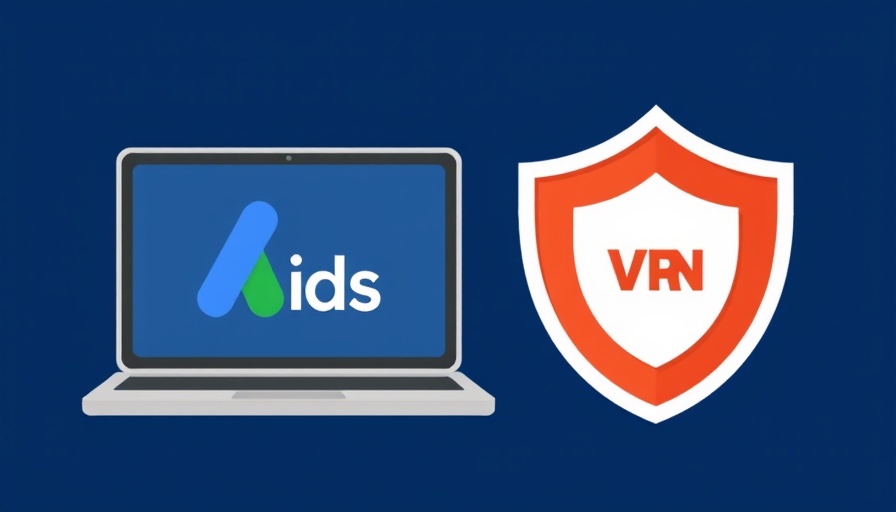
Understanding the Challenge of VPN Traffic in Google Ads
In today's digital landscape, the growth of VPN usage, or Virtual Private Networks, presents a unique challenge for businesses advertising on platforms like Google Ads. VPNs allow users to surf the internet securely and privately by masking their IP addresses. Although many people use VPNs for legitimate reasons, such as protecting their personal data, the anonymity they provide can also fuel illicit activities like click fraud, significantly impacting your advertising efforts.
Why Is Blocking VPN Traffic Important?
As advertisers, ensuring that ad budgets are used effectively is crucial. Click fraud, wherein individuals or bots click on ads with no intention of making a purchase, can drain marketing budgets and distort analytical data. According to a recent study, it is estimated that up to 30% of online ad clicks could be fraudulent due to the misuse of VPNs. This type of traffic can lead to skewed analytics and low conversion rates, resulting in wasted resources and poor ROI.
Strategies to Block VPN Traffic
To safeguard your Google Ads campaigns from the negative effects of VPN traffic, consider implementing a multi-faceted approach:
1. Utilize IP Exclusions
Google Ads provides the option to block specific IP addresses. To do this effectively, you'll need to identify IP addresses typically associated with VPN services. Tools like Google Analytics or third-party databases can help in compiling lists of suspicious IPs that you can exclude from your campaigns.
2. Geolocation Targeting
Refining your ad targeting by excluding high-risk regions can minimize exposure to potentially fraudulent VPN traffic. Although VPN users can spoof their locations, geographic filtering can still mitigate some risk.
3. Optimize Time-Based Targeting
Analyzing traffic patterns and adjusting your ad schedule to target peak activity times can help in avoiding non-human behaviors associated with VPN users. Dayparting can be a powerful tool to ensure your ads run when genuine customers are most active.
4. Leverage Google Ads Scripts
Automated Google Ads scripts can enhance campaign control and help identify unusual IPs or clicking behaviors that might suggest VPN usage. Setting parameters for click patterns can alert you to fraudulent activity, ensuring proactive management of your ad spend.
5. Implement Third-Party Click Fraud Protection
While Google Ads offers built-in protections, utilizing third-party fraud detection services like ClickGUARD can provide deeper insights and security. These tools leverage advanced algorithms to detect unusual clicking patterns and offer real-time blocking of suspected fraudulent traffic.
The Data-Driven Solution
Data analysis is central to any effective strategy in managing VPN traffic. Ensure that your analytics tools are up-to-date and provide comprehensive reporting on traffic quality. Viewing click patterns and conversion rates will enable you to make informed decisions about where to direct your ad investment.
Empowering Advertisers
Ultimately, as the digital marketing landscape evolves, staying informed about trends like VPN usage is critical. Blocking VPN traffic from your Google Ads campaign not only protects your budget but also improves your overall ad performance. Take the time to assess the various methods available, and consider incorporating tools that best fit your operational structure.
Conclusion
While you cannot eliminate all VPN traffic on Google Ads, a balanced strategy involving IP exclusions, geolocation targeting, and third-party solutions can significantly reduce its impact. The challenge continues to evolve as technology advances, but companies that leverage data positively are the ones that will thrive.
Ready to enhance your ad protection? Start with click fraud detection software and see how it can save your marketing budget today!
 Add Row
Add Row  Add
Add 




Write A Comment